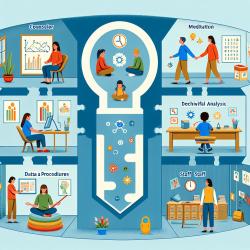Introduction
In the ever-evolving landscape of healthcare, the COVID-19 pandemic has underscored the critical need for innovative solutions to deliver medical services, especially in unreached communities. The research article "Redesigning Portable Health Clinic Platform as a Remote Healthcare System to Tackle COVID-19 Pandemic Situation in Unreached Communities" presents a compelling case for the use of Remote Healthcare Systems (RHS) to mitigate the risks associated with the pandemic, particularly in underserved areas.
The Power of Remote Healthcare Systems
Remote Healthcare Systems, such as the Portable Health Clinic (PHC), have emerged as pivotal tools in delivering healthcare services to populations with limited access to traditional medical facilities. By leveraging the WHO guidelines and Design Science Research (DSR) framework, the PHC has been redesigned to effectively address the challenges posed by COVID-19. This innovative approach not only aids in the containment of the virus but also enhances the triage and management of patients, particularly those with noncommunicable diseases (NCDs).
Key Features of the Redesigned PHC
- Triage Algorithm (C-Logic): The PHC employs a new triage algorithm that categorizes patients based on their risk levels, facilitating timely medical intervention.
- Remote Monitoring: Utilizing a distributed service platform, healthcare workers equipped with appropriate testing kits can screen high-risk individuals, optimizing the triage process.
- Public Health Contribution: The PHC system is designed to "flatten the curve" by reducing the transmission risk among high-risk NCD populations in developing countries.
Implications for Practitioners
For practitioners, the insights from this research offer valuable opportunities to enhance their service delivery, especially in speech language pathology. By integrating RHS like the PHC into their practice, practitioners can:
- Expand their reach to underserved communities, ensuring equitable access to healthcare services.
- Utilize data-driven decisions to improve patient outcomes and optimize resource allocation.
- Contribute to public health efforts by participating in innovative healthcare delivery models.
Encouraging Further Research
While the current findings are promising, further research is encouraged to explore the full potential of RHS in various healthcare domains. Practitioners can contribute to this body of knowledge by conducting studies on the efficacy of remote healthcare interventions in their specific fields, such as speech language pathology.
Conclusion
The redesign of the Portable Health Clinic as a Remote Healthcare System represents a significant advancement in the delivery of healthcare services during the COVID-19 pandemic. By embracing these innovations, practitioners can play a pivotal role in improving healthcare access and outcomes for children and other vulnerable populations.
To read the original research paper, please follow this link: Redesigning Portable Health Clinic Platform as a Remote Healthcare System to Tackle COVID-19 Pandemic Situation in Unreached Communities.










